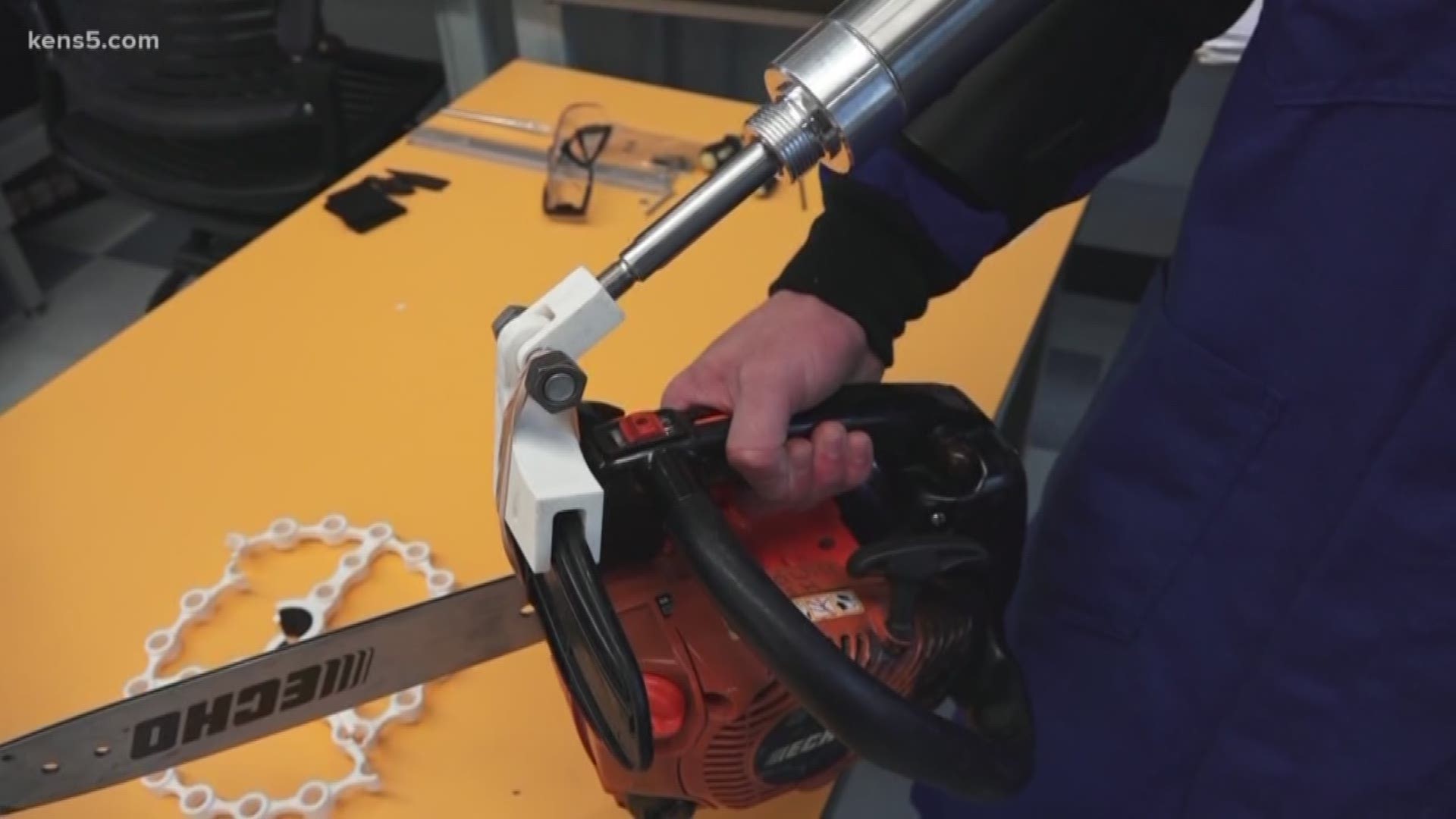SAN ANTONIO — The majority of Goodwill employees have some type of disability—80 percent of the workers, to be exact. That's why for over a decade, Goodwill of San Antonio and Trinity University have been working together to develop work-accessible tools for those people.
"This is a device that's supposed to help people that have one arm use chainsaws," said Trinity sophomore Cole Grisham, detailing the use of one of those tools. "In this case, we designed this specifically for the Echo chainsaw with this specific chain break."
Grisham is one of several students working on this very prototype, one of five projects Trinity engineering students have been working on for less than $200.
"Given our time and given our money constraints, we were basically forced to use the rubber band and duck tape for the time being," he said.
Walter Perez, contract administrator for Goodwill San Antonio, said the initiative is a mutually beneficial one.
"We provide Trinity with real world projects, real world issues, and they provide us with adaptive gear that really enables individuals with disabilities," Perez said.
Another of the projects is meant to limit the vibrations of string trimmers, or weed whackers.
"We are testing this string trimmer here that operates with lower vibrations," said Trinity junior Morgan Jones, who took to task to make it easier for those using weed whackers day after day. "Every day I see workers with string trimmers out on the Trinity campus, and I always keep thinking, 'I need to keep working on this research.'"
It's typically instructors who inject drive and inspiration into their students. But for Jack Leifer, an associate professor of engineering science at the university, these projects have turned that cliche on its head.
"I can come in here at 11 at night and I see the two of them working in the computer lab together," Leifer said. "They really inspire me when I feel tired and when I lack motivation."
All of those involved say they're thrilled to know they'll be helping people in the real world.
"It feels like I'm making a difference, rather than learning things and not making progress," Grisham said.
And according to Leifer, that realization is part of the process for the students and this hands-on opportunity.
"That's the whole purpose of engineering," he said. "To try to improve the world and make every day living better for everyone."
Other popular stories on KENS5.com:

